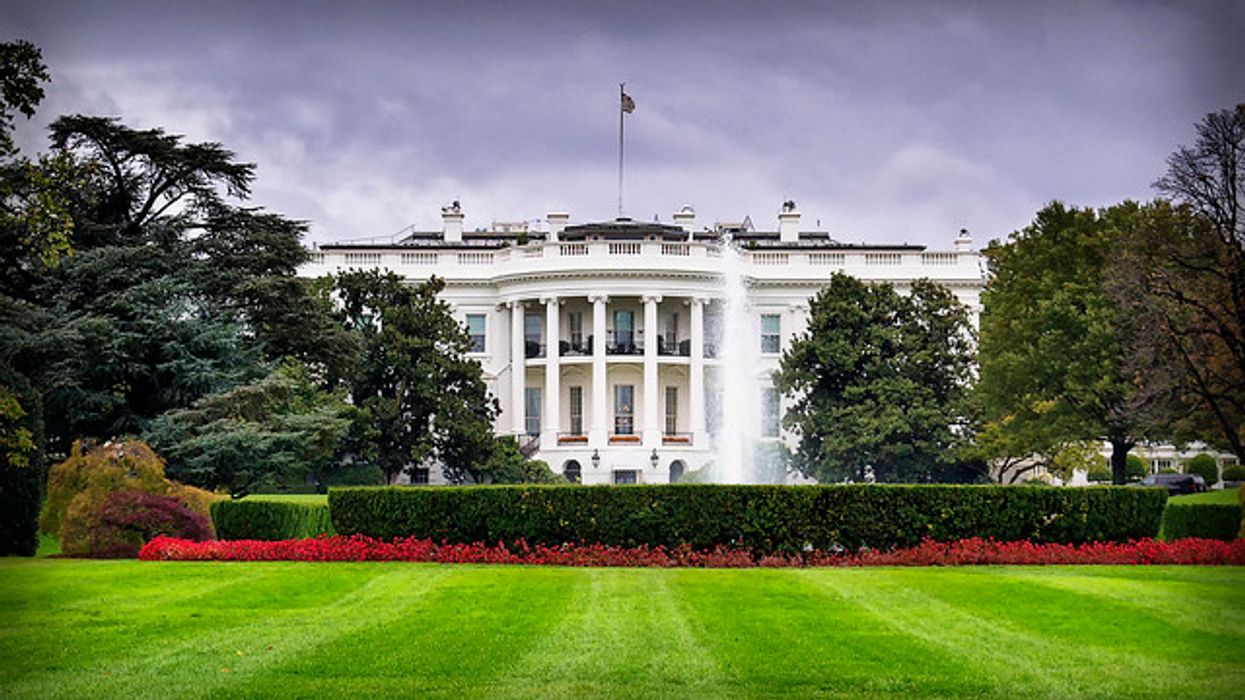Why America Needs Birthright Citizenship
It's part of who we are.
The White House executive order theoretically ending birthright citizenship grandly proclaims its purpose as "Protecting the Meaning and Value of American Citizenship." As we've come to expect from this administration, the proposed change to American law would do the exact opposite. Also in keeping with the Trumpian model, the president's comments accompanying the signing were false. "Birthright, that's a big one," Trump frowned. "It's ridiculous. We are the only country in the world that does this with the birthright, as you know, and it's just absolutely ridiculous."
Trump frequently adds "as you know" or "as you know very well" to his reality-bending comments to rope the hearers (usually members of the press) into a kind of involuntary consent. They have no opportunity to object or protest, and so he seems to rope them into his various fantasies, such as the lie that there was widespread fraud in the 2020 election or that Ukraine hosted Hillary Clinton's CrowdStrike email server.
But, no, we don't know very well that the United States is the only country in the world that grants unconditional birthright citizenship. Not even close. According to a 2018 report by the Library of Congress, practically the entire Western Hemisphere does the same, including Canada and Mexico. Pakistan too gives citizenship to every child born within its borders, and Germany and the UK have something close — extending it to babies with one citizen or permanent resident parent.
Nor is it the case, as Trump contended in his first term, that "birth tourism" is an urgent national problem. The anti-immigration Center for Immigration Studies published a claim that 33,000 babies were born per year to women traveling to the United States just to give birth. The Niskanen Center examined their statistics and found that, while it's true that some women do scheme to have their babies here, the CIS numbers were wildly exaggerated. The true number, they reckon, was closer to 2,000.
Trump is trying to behave like an emperor. He sits at the Resolute Desk and scrawls his Sharpie across documents as if that's all there is to it. He has the effrontery to do so with the preamble "By the authority vested in me as President by the Constitution and the laws of the United States of America, it is hereby ordered ... "
The president has vast powers, but he does not have unlimited power. He cannot, with the stroke of a pen, repeal a Constitutional amendment. And the Constitution of the United States is entirely clear about birthright citizenship. The 14th Amendment prescribes that "All persons born or naturalized in the United States, and subject to the jurisdiction thereof, are citizens of the United States and of the State wherein they reside." This was a Constitutional corrective to the infamous Dred Scott decision that had denied all rights to African Americans. The phrase "subject to the jurisdiction thereof" was understood at the time to exclude the children of diplomats and some Native American tribes — not immigrants. This isn't some throwaway line that no one has ever challenged. In 1898, the Supreme Court ruled that a man who had been born to Chinese immigrant parents on U.S. soil could not be denied his citizenship even though in the years after his birth, Congress had passed the Chinese Exclusion Act.
As Judge John C. Coughenour, a Reagan appointee, noted last week in a ruling temporarily blocking Trump's order, "This is a blatantly unconstitutional order." He even directed some ire at Trump administration lawyers, saying, "Frankly, I have difficulty understanding how a member of the bar would state unequivocally that this is a constitutional order. It just boggles my mind."
The assault on birthright citizenship is more than an overzealous assault on immigration; it is part of Trump's ongoing attempt to limit membership in the American family. He rose to political prominence by calling the first Black president's citizenship into question, bullied Black lawmakers with the taunt that they should go back to where they came from and lamented that we are not attracting more immigrants from places like Norway. Not subtle.
Those who approve of Trump's approach (even if they acknowledge that he should do this via a proposed constitutional amendment instead of an absurd ukase) should reflect on what it would mean to repeal birthright citizenship. The rule that your citizenship cannot be questioned if you are born on American soil is integral to American identity.
This country is not comprised of people sharing the same ethnicity and heritage. It is not the ancestral homeland of anyone except the Native Americans. It is composed of immigrants (most voluntary, some enslaved) who made this their home. No American should feel that his Americanness is dependent upon long ancestry in the land. Trump's own mother was born abroad. Most of his children are also the children of immigrants. No, if you're born here or become a naturalized citizen, you are as American as any Mayflower descendant.
If we were to dispense with birthright citizenship, we would erode the sense of equality that Americans enjoy and replace it with tiers — legitimate citizens who can trace their ancestry back a generation or two, and interlopers.
One of the greatest strengths of this country has been our ability to assimilate immigrants and transform them from whatever they were into Americans. Birthright citizenship is a vital aspect of this process. The parents who welcome an American citizen child are tied to their child's nationality and all the more willing to contribute and participate.
As a Jewish American, I've looked countless times at my passport in gratitude that I was born in New York City and no one could contest my legitimacy. If birthright citizenship is overturned, what will the criteria for unassailable Americanness be?
Reprinted with permission from Creators.












